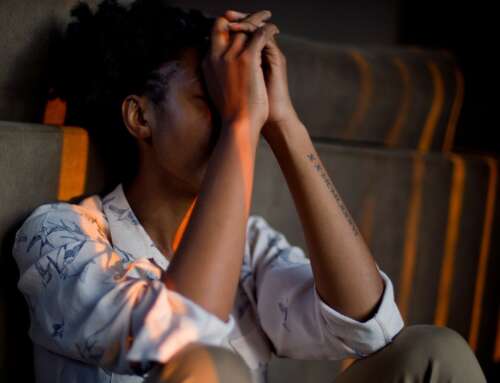“I was sat at a table with a number of my colleagues who’d made the trip. I can’t remember a thing that Leighton said in a 45-minute address (sorry, Leighton). What I do remember vividly is spending the whole time fantasising about my own death; this reccurring and carefully mastered sequence of events involved my driving to Menai Bridge and hurling myself off. Of course, I wasn’t particularly keen on the idea of pain, but the escape offered by death was alluring, the comfort of “freedom” from the intense feelings I had. “Feelings” that went beyond “feeling down” – way beyond. My head and heart felt like a tinderbox constantly wanting to catch ablaze.
A few months after Leighton’s speech, I found myself sat in the middle of an empty field in North Wales crying uncontrollably, not being able to stop. A lone dog walker had spotted me lying there and called the police. She was a local villager, so she had told them where I lived. They turned up later that night at my door and asked me if I intended to kill myself. Of course I didn’t. Nevertheless, this moment perfectly captured what I went through for nigh on a year, day after day, week after week.
I didn’t tell anyone at my school anything. I should have.
But at that time, I’d just been promoted. I’d just started teaching sixth form. I was halfway through a master’s accredited leadership course. I was also aware of being suspected as slightly crazy if I came forward with these revelations. This wasn’t because I didn’t trust my colleagues – they were some of the most wonderful I’ve ever worked for or with – but because of the way society is, especially then.
In a paradox I struggle to understand, my productivity continued to increase, my career continued on an upward trajectory.
It was during this time that I drove myself to the hospital at 3am on a school night to tell them I was feeling desperate and, after a few consultations with a psychiatrist, was diagnosed with cyclothymia or “bipolar lite”, as Stephen Fry calls it. At the time, I linked almost all my feelings to the ending of a relationship, but this was naïve. Although this “bout” was the worst I’ve experienced, over the subsequent seven years, I’ve had more short bursts of the same; for hours, days, sometimes months, mixed in with occasional “highs”, when I’m the social equivalent of Will Smith.”
– Tom Rogers
Read more: “Discuss Own Struggles With Mental Health” – One Teacher’s Extraordinary Story







Leave A Comment